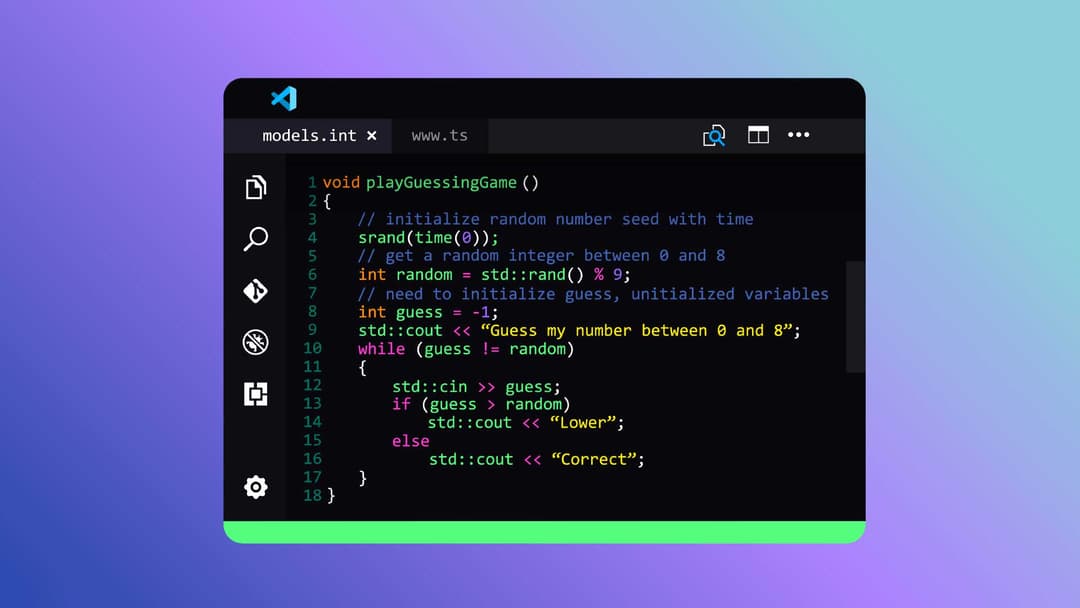An ultimate guide to data science in 2022

Working table with a developer’s laptop.
The term “data science” has now become a buzzword, almost every job sector requires experts in this field. Why is data science in such extreme demand? How to become a data scientist with zero tech background? Preface team is here to answer all your questions!
Definition of data science
Data science is in fact a full package, involving statistics, artificial intelligence (AI), data analysis, data value extraction and more.
In the book named “Doing Data Science”, the senior professionals summarize their daily routine this way:
“Data scientist is someone who knows how to extract meaning from and interpret data with multiple tools and methods.”
And to uncover meaningful insights from vast volumes of data, one must master five different stages in the data science life cycle:
Data Science Life Cycle | |
1. Capture | * Data Acquisition |
Data Entry
Signal Reception
Data Extraction
| | 2. Maintain | * Data Warehousing
Data Cleansing
Data Staging
Data Processing
Data Architecture
| | 3. Process | * Data Mining
Clustering
Data Modeling
Data Summarization
| | 4. Analyze | * Exploratory and Confirmatory
Predictive Analysis
Qualitative Analysis
Regression
Text Mining
| | 5. Communicate | * Data Reporting
Data Visualization
Business Intelligence
Decision Making
|
Why is data science such a hot career?
Hailed as the most important job in the 21st century, you may wonder if it’s overrated.
Well, good news to whoever is interested in numbers, the potential of data science is massive.
First of all, in today’s data-heavy world, the ability to make sense of data is crucial to better decisions and strategic business moves. Data is unavoidable to every business, ranging from health-care to banking, from consultancy services to FMCG industries. Through understanding statistics collected from websites, social media platforms and electronic payment bills, leaders know how to make smarter decisions about where to take their companies.
Not to mention that data helps businesses to take accurate corrective steps, improving both efficiency and productivity. Effort is not always proportional to the result if you take the wrong way. Unfortunately, it can be difficult for businesses to clarify where their operations fall short, in such cases, data science comes in handy – historical data can reveal exactly the root cause beyond superficial problems, supplemented with concrete evaluation and real-time report to keep track of the improvement progress, which is vital to the success of any business.
Source: AnalytiXLabs, Grow
List of data science related career options
To be honest, employees with a data science background are needed in literally every job sector — not limited to technology. Below are the most common careers:
1. Data Scientist
Doubtless, data scientist is the most related position. Job duties include extracting data from multiple sources, sifting and analysing data from different angles so as to generate data-driven solutions. Briefly speaking, it requires a high level of technical competencies such as coding languages, databases, machine learning and reporting technologies. Typical employers are from education, banking, marketing and retail sectors.
2. Business Intelligence (BI) Developer
The BI Developer works closely with end users to structure a comprehensive reporting system, offering accessible information for future decision-making. Since the process involves use of warehouse data, candidates must be proficient in extracting data with retrieval and management tools, also, to identify and resolve data quality and data reconciliation issues if necessary. Vacancies are often found in large corporations and in IT companies.
3. Machine Learning Engineer
The responsibilities include designing and developing machine learning models, thus, applicants must have exceptional knowledge in statistics and programming, relevant experience in data science and software engineering is also a must. The development progress usually begins with studying the data science prototypes, followed by selecting the appropriate datasets and data representation methods according to requirements. Since machine learning is booming right now, almost every industry is interested in hiring an expert.
Source: Target Jobs, Industry Connect, Springboard
Want to keep up with the tech-driven future? Check out Preface Coding Event for our latest Tech Seminars and Coding Workshops to stay relevant! Come enjoy the exquisite beverage selection from Preface Coffee & Wine while updating yourself with the most up-to-date knowledge!
How to learn from zero to hero in Hong Kong?
Technology is a growing trend in the digital economy providing massive job opportunities. Programmers, software engineers, and developers are in high demand across different industries. With coding as the fundamental skill, you open up career choices. It also makes your portfolio stand out from the others. Many companies might also outsource their coding-related works, thus, being a coding expert helps you earn freelance income, and offers career flexibility.
If you are a beginner to data science, the 80-hours part-time Data Science & A.I. with Python offered by Preface is the perfect choice for upskilling. You can take your lessons either individually or with like-minded classmates, no matter what format you choose, there will always be a professional instructor.
The course consists of 5 modules. You will learn how to code in Python and work efficiently with big datasets, analyze and harvest clean data sets and create data frames to run basic analysis. Moreover, you will learn how to present data in informative and striking graphics. You will also be introduced to practical machine learning techniques so as to make predictions as well as deliver insights.
Since the course is based on real-life use cases and business applications, students can quickly understand how to apply different programming techniques according to the given scenarios. Most importantly, students never need to quit their jobs or give up other priorities, Preface allows participants to take full control over the lesson schedule and pace, maximizing the learning outcome.
Are Python and R for data science?
Both Python and R are open source languages and well suited for data science tasks.
Usually, Python is a general-purpose language that can be used whenever programmers want to delve into data analysis or apply statistical techniques, whereas R is applied mostly in exploratory data analysis that are popular within academia, finance, pharmaceuticals, media and marketing.
Source: IBM
Relationships between data science, artificial intelligence and machine learning
Learning to code helps you accomplish innovative projects and make you a valuable asset to the company. You can visualize and understand the risk and challenges from an engineer’s point of view, making you a great teammate or leader to work with. Coding skills also help you leverage data and logical thinking in decision making, thus achieving better performance.
Data Science | Artificial Intelligence | Machine Learning | |
Definition | Include various data operations | Include Machine Learning | Subset of Artificial Intelligence |
Purpose | Create insights from data that deals with real world complexities | Make a computer imitate human’s behavior and mindset to solve complex problems | Predict or classify outcomes for new data points by learning patterns from historical data |
Theory | Structured and unstructured data | Logic and decision trees | Statistical models |
Application | * Fraud detection |
Healthcare analysis
| * Chatbots
Voice assistants
| * Recommendation systems such as Spotify
Facial Recognition
|
Source: My Great Learning
What are the differences between Data Scientist, Data Analyst and Data Engineer
Data Scientist | Data Analyst | Data Engineer | |
Role | Senior | Entry | Intermediary between data analysts and data scientists |
Responsibilities | Develop actionable business insights | Translate numeric data into a form that is understandable to everyone | Pair and prepare data for operational or analytical purposes |
Requirements | Deep expertise in machine learning, statistics, and data handling | Proficiency in programming languages, analytic tools, fundamentals of data handling, reporting, and modeling. | Experience in construction, development, and maintenance of the data architecture |
Annual Salary | ~ $790,000 HKD | ~ $380,000 HKD | ~ $670,000 HKD |
Source: Simplilearn, Glassdoor
Want to keep up with the tech-driven future? Check out Preface Coding Event for our latest Tech Seminars and Coding Workshops to stay relevant! Come enjoy the exquisite beverage selection from Preface Coffee & Wine while updating yourself with the most up-to-date knowledge!
Wish to see what other innovative projects that we have launched? Take a look at our Instagram or Facebook for our latest news.






